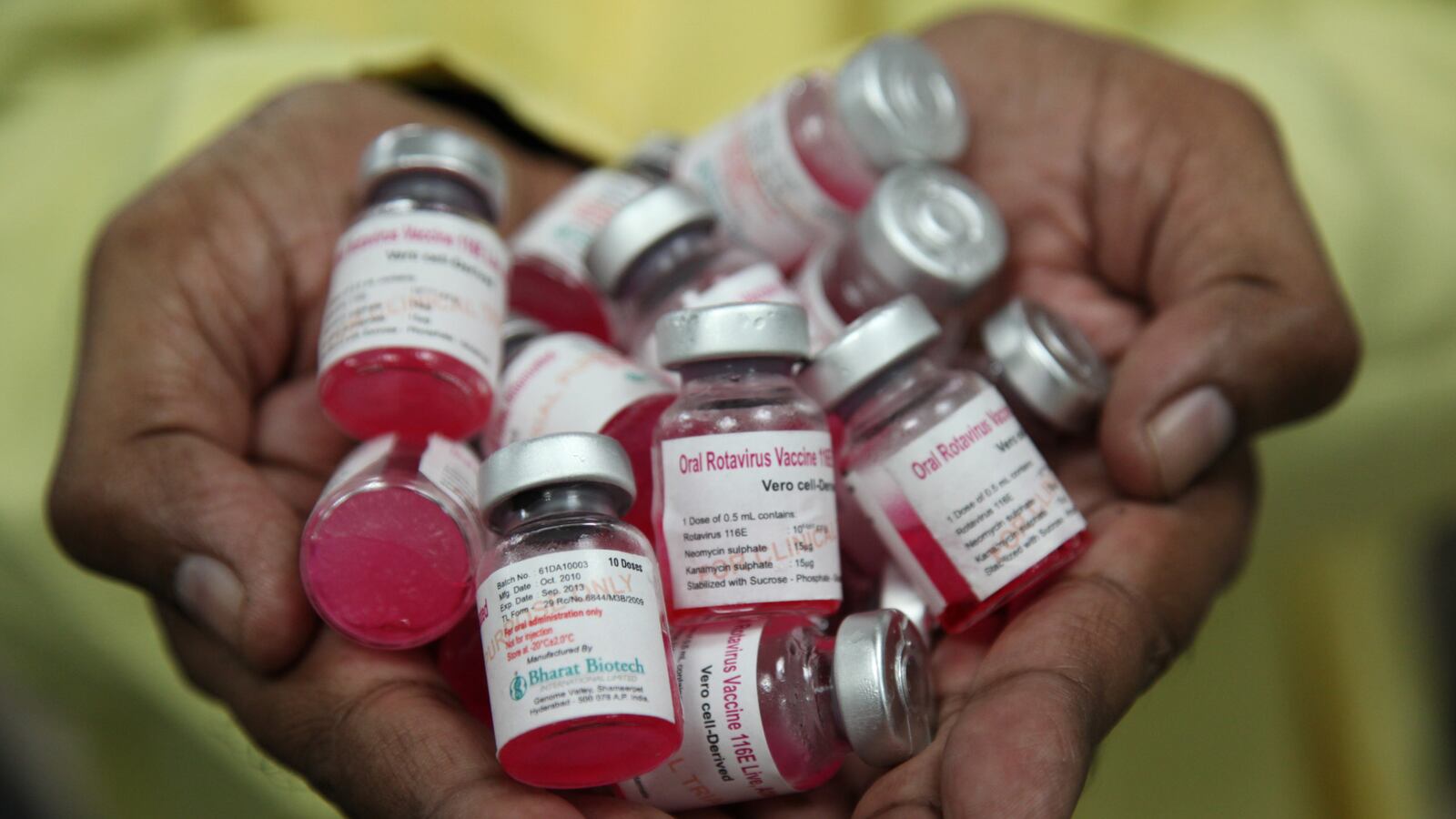It is no fun to vomit for a week.
Unfortunately, for some young patients who get infected with rotavirus—a viral illness that’s easily passed from child to child and can be transmitted by contaminated toys or food—that’s what they have to look forward to. Protracted vomiting is one of the primary symptoms of the illness, along with diarrhea, abdominal pain, and fever.

For years, during peak seasons, I could rely on at least a few infected patients getting admitted to the hospital with dehydration, sometimes for many days of IV fluids before they recovered.
Happily, it’s been several years since the last time I had to take care of a patient hospitalized for a rotavirus infection, and the reason is simple—we have an effective vaccine against it. Having never seen a case of diphtheria, tetanus, or measles (though I fear it’s only a matter of time with that last one), the drop in rotavirus rates within my own practice is my first chance to witness the impact of vaccination play out in real time during my career.
My experience is hardly unique. According to a new study published in the journal Pediatrics (PDF), vaccination against the virus has led to a 94 percent reduction in the rate of hospitalization for the illness. The authors estimate that 1.5 million health-care visits have been avoided in the past eight years, for a savings of over $900 million.
One look at those numbers is all it takes to realize how absurd the decision not to vaccinate is. Doctors who argue that parents should avoid the vaccine because the illness probably won’t kill you are essentially saying that it’s worth hundreds of millions of dollars to care for millions of miserable children whose sickness was otherwise preventable. Death isn’t the only health-care outcome we try to prevent in medicine, and I have little but contempt for any medical provider who doesn’t seem to understand that.
But the history of vaccination against rotavirus infection isn’t merely the story of preventing illness. It also offers an illustration about vaccine safety in general. In the late 1990s a vaccine called RotaShield was licensed in the United States. Unfortunately, it was discovered that this vaccine increased the risk of intussusception, a rare but serious condition where one part of the intestine telescopes into another section. The increased risk was estimated to cause an additional one or two cases per 10,000 immunized infants. This small rise in cases was detected quickly and the vaccine was pulled after a little more than a year. (There may be a very slight increased risk with the newer rotavirus vaccines, on the order of one to five additional cases per 100,000 immunized children—a relative risk that is vastly outweighed by the benefits.)
Every time spurious claims about the dangers of vaccines are raised, it’s always implied or asserted that medical providers and public health officials turn a blind eye to the harms they cause. This is demonstrably false. When the anti-vaccine movement claims that immunizations cause autism, they not only ignore medical studies, they also ignore the history of vaccine safety surveillance in the United States.
Because of the rotavirus vaccine, millions of children have been spared a really lousy illness, and our country has saved hundreds of millions of health-care dollars. This new study joins the growing body of evidence that shows how overwhelmingly beneficial vaccinations have been to our country and the world. In the case of rotavirus, it’s a benefit I’ve been lucky enough to see with my own two eyes.






